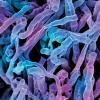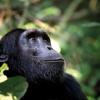We asked biomedical scientist and intrepid traveller Sue Alexander her plans and opinions on travel as the world starts to open up again. Here’s what she said.

I have travelled extensively throughout my life, including remote destinations such as The Galapagos, Easter Island, Madagascar and Greenland, as well as more mainstream destinations around the world. Some readers may remember articles in The Biomedical Scientist about my travel to Antarctica and Svalbard. There is no, or very limited access to, medical care in these areas and you have to accept that if you are taken ill in this sort of destination it will take a long time to get you back to safety and you have to bear this in mind. I have also travelled in politically volatile countries and others where kidnapping of tourists is not unknown. I travelled to Europe three times last summer and autumn and have three trips booked this year with further plans. Eventually, I think we will travel as we did before, more or less, but that will take time.
Precautions taken
With two doses of Pfizer and no risk factors, I am not worried myself about travelling, but then I am open to risk. I am also desperate for a “real” break away from work and familiar surroundings so I can totally relax and recharge my batteries. Then there is the traffic light list of countries meaning the choice of destinations is extremely limited, unless you want to isolate on your return, and several of the countries will require you to isolate for up to 14 days on arrival – not inviting. The precautions at airports and on planes are extensive with one-way systems, mask wearing and hand hygiene to the fore. The biggest nightmare has actually been trying to book a COVID PCR test online: the Boots website (other testers are available) is possibly the most labyrinthine I have ever encountered and it took two hours to book two tests. Anyone travelling from the UK to green list countries will almost certainly have had to test negative.
Please click here to read the full article.




